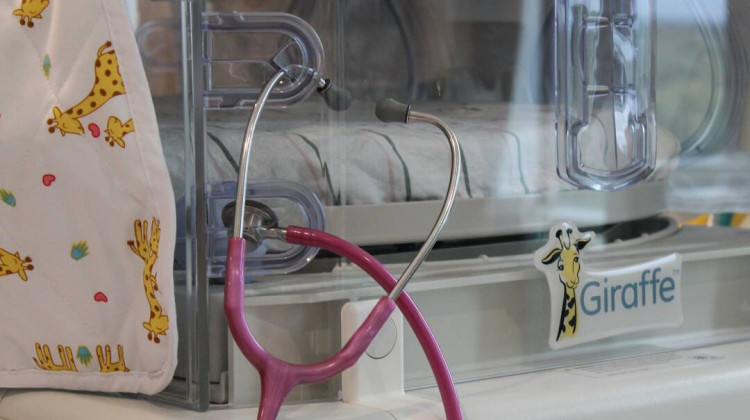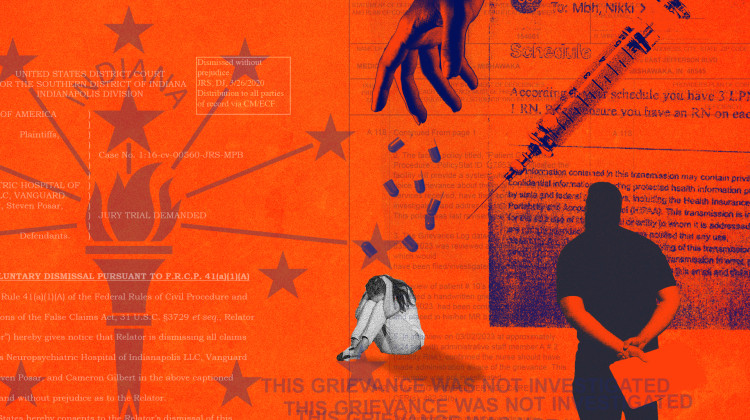A bill that would ensure most drug discounts and rebates are passed on to consumers in Indiana sailed through the House today after a unanimous “yes” vote.
The authors of Senate Bill 8 hope the measure will make a dent in health care costs in Indiana by taking aim at pharmacy benefit managers and health insurers.
“[SB 8] is a bill that deals with the high cost of health care by addressing pharmacy rebate and insurance and PBM transparency,” said Rep. Donna Schaibley (R-Carmel).
Pharmacy benefit managers or PBMs liaise between drug companies, pharmacies and health insurance companies, leveraging the big networks of health insurers and millions of patients they represent to negotiate lower prices for medications.
Under SB 8’s current version, PBMs would be required to submit reports to the Indiana Department of Insurance every six months detailing how much they make from working as the middlemen between pharmacies and insurance companies. The reports would include aggregate data on the amount charged to health plans and the amount paid to pharmacies.
The bill would also require insurers to pass on most of the drug discounts or rebates they receive to consumers either through lowering health insurance premiums or charging less for drugs at the pharmacy counter.
The bill also allows the Department of Insurance to impose penalties not exceeding $10,000 per violation if insurers and PBMs do not comply.
But some drug pricing researchers and analysts are concerned that the current version of SB 8 would be ineffective.
“SB 8 has been watered down to the point of near irrelevance,” said Antonio Ciaccia, president of the consulting firm 3 Axis Advisors and CEO of the drug pricing research nonprofit 46brooklyn Research, in an email. “The bill has been stuffed with hollow language that will provide limitless ways to undermine the original intent of the bill.”
He said the House version of the bill could provide ways for PBMs and health insurance companies to work around the system, which will mean billions of dollars in drug rebates and discounts might not actually flow to benefit patients and employers.
Language in the bill that defines rebates with “specific constraints,” he added, could give PBMs and insurers the opportunity to “categorize price concessions as anything other than what the bill defines.”
Ciaccia pointed to a lawsuit filed by the Ohio Attorney General this month against PBM Express Scripts and health insurance company Cigna. The lawsuit alleges that the companies were involved in price fixing and purposefully hiding rebate dollars.
In its current form, if the measure becomes law, it would take effect in January 2025. The bill now heads back to the full Senate for further consideration before it goes to the governor’s desk.
Contact Farah at fyousry@wfyi.org. Follow on Twitter: @Farah_Yousrym
 DONATE
DONATE








 View More Articles
View More Articles


 Support WFYI. We can't do it without you.
Support WFYI. We can't do it without you.